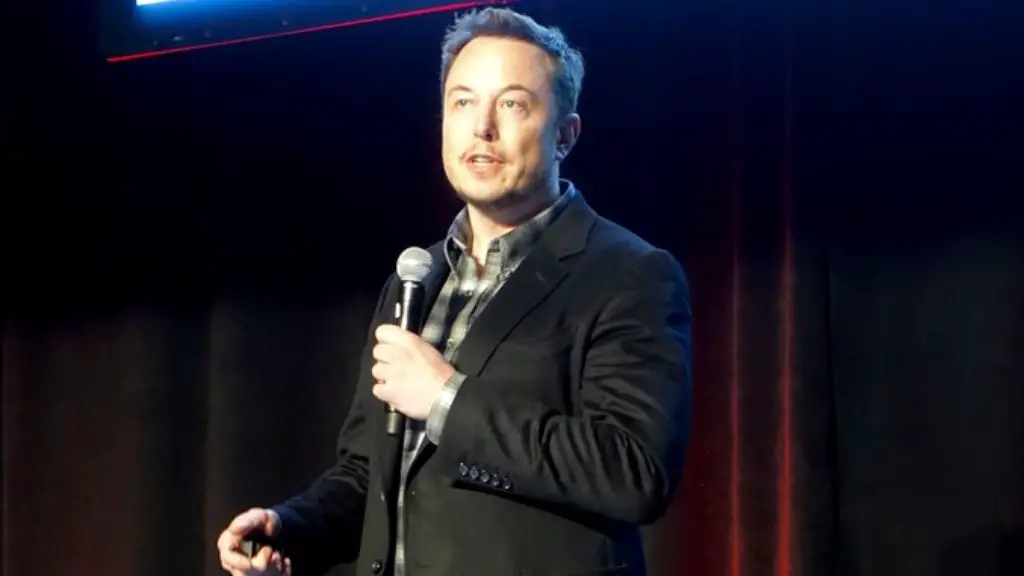Elon Musk, the South African born business magnate, has expanded his business reach from the automotive and energy industries to early-stage aerospace engineering projects. He is the founder, CEO and Chief Technology Officer (CTO) of Tesla Motors. He is also co-founder, CEO and CTO of Space Exploration Technologies (SpaceX) and CEO of Neuralink. Musk has been described as an “entrepreneurial legend” and a “total genius” who is changing the world.
But just how much tax Musk pays has become a point of debate and controversy. Despite Musk’s immense wealth and generous investment in new technologies, he has often been criticized as a tax dodger. An investigative report from Business Insider in 2017 revealed that despite amassing a net worth of almost $17 billion, he paid only $68,000 in taxes for the year.
The evidence suggests that Musk, and many others in the same financial bracket, exploit the legal loopholes of government tax policy in order to reduce the amount of tax they pay. This is known as “tax avoidance”. Tax avoidance is not illegal, but experts say that it reduces the amount of money available to be spent on essential public services such as healthcare and education.
Experts point out that if tax avoidance was reduced, governments would have billions of dollars more in tax revenue to invest in crucial social services. The lack of taxation on ultra-high net worth individuals like Elon Musk only serves to increase inequality in society.
It’s important to note that Musk is far from alone in exploiting tax loopholes to reduce his tax bill. According to figures released by the Wall Street Journal last month, wealthy individuals and corporations routinely pay markedly lower rates of federal income taxes than the average American.
Another report published by the nonpartisan Institute on Taxation and Economic Policy found that 25 large, publicly traded U.S. companies managed to pay zero in federal income taxes over the past three years. What’s more, these companies also received more than $4 billion in federal income tax rebates over the same period.
Implications of Tax Avoidance
Tax avoidance has various implications for society, ranging from the economic to the social. Economically, it means that there is less money to be put back into the economy in the form of public services and infrastructure. Socially, it’s been argued that tax avoidance contributes to greater levels of income inequality and a lack of social mobility.
Recent research from the Institute of Fiscal Studies found that the gap between the richest and poorest in the UK has widened significantly in the past decade, with the wealthiest 10% of households now paying just 11% of their income in taxes compared to 20% back in 2010.
Aside from the economic and social implications, there is also a moral aspect to tax avoidance. Tax avoidance is seen by some as being morally wrong, as it effectively means that wealthier individuals can get away with paying less for services that are provided for everyone else.
There have been growing calls for governments to take action to ensure that wealthy individuals and corporations are paying their fair share of taxes. However, many economists have cautioned against changing existing policies, as tax avoidance is often used by companies to remain competitive in international markets.
Consequences of Tax Avoidance
Tax avoidance can have serious consequences for both individuals and corporations. Individuals who are caught evading taxes can be charged hefty fines and even face criminal prosecution. For corporations, the consequences can be even more severe, with a potential loss of reputational damage and a decrease in share prices.
In addition, there is a risk of governments introducing punitive measures to discourage tax avoidance. The government of the United Kingdom, for example, passed the Diverted Profits Tax (also known as the “Google Tax”) in 2015, which was specifically designed to punish companies that intentionally diverted profits to low-tax jurisdictions.
The “Google Tax” has been criticized by some economists, who argued that the tax was overly complex and unnecessary. Nonetheless, it was an indication that governments are getting more serious about tackling the problem of tax avoidance.
Protecting Income from Taxes
There are various legal measures that can be taken to protect income from taxation. These include the use of offshore structures to minimise taxes, and the use of philanthropy and investment funds to redirect income into tax-exempt areas. However, these strategies can often be complex and time-consuming, and may only be suitable for wealthy individuals.
More recently, there has been a growing trend among wealthy individuals towards “tax-efficient giving”. This involves giving money to charities or social enterprises in a way that maximises the potential tax deductions that can be claimed. This can be an effective way of reducing tax liabilities while also supporting important social causes.
Tax efficient giving can also be beneficial for individuals who are looking to invest in start-up businesses, as it offers an incentive for them to invest in high-risk ventures. To ensure that the full potential of tax efficient giving is realised, investors must be sure to consult with a tax adviser before investing.
Tax Evasion
Tax evasion is a different matter altogether. Tax evasion is, by definition, illegal and is often considered to be much more serious than tax avoidance. Most countries have punitive measures in place to punish people who evade taxes and so-called “tax havens” are now subject to stricter regulations and scrutiny.
However, research suggests that tax evasion and avoidance remain significant problems in many countries. The International Monetary Fund (IMF) reported in 2017 that the global black market economy was worth around $2 trillion a year, and the OECD estimates the amount of revenue lost due to tax avoidance and evasion is in the hundreds of billions of euros annually.
In conclusion, it is clear that tax evasion and avoidance remain significant problems for governments around the world and that more needs to be done to ensure that wealthy individuals and corporations are paying their fair share of taxes.
Tax Avoidance Strategies
Tax avoidance strategies can be broadly classified into two main categories: legal and illegal. Legal strategies include using existing tax laws and regulations to reduce a person’s taxable income. These strategies are often used by wealthy individuals and corporations, who can take advantage of their financial resources. Illegal strategies involve deliberately concealing or misrepresenting income or assets in order to reduce the amount of taxes they pay.
It is important to note that tax avoidance is not necessarily illegal, although it can result in hefty fines depending on the country. As such, it is advisable to consult with a tax adviser before taking any action. That said, it is also important to be aware of the potential consequences of tax avoidance, and to be aware of the latest developments in tax policy.
The OECD and the G20 have both issued statements in recent years urging countries to take action to address tax avoidance and evasion. Most countries have responded by introducing measures such as the Common Reporting Standard, which encourages countries to exchange more information about their citizens’ tax affairs in order to prevent tax evasion.
Social Consequences of Tax Avoidance
There are also social consequences to tax avoidance and evasion. Tax avoidance contributes to rising levels of income inequality, which can have a detrimental impact on economic growth and social mobility. A recent report by the Institute for Fiscal Studies found that the gap between the richest households and the poorest has widened significantly over the last decade.
The report also found that the wealthiest 10% of households in the UK paid 11% of their income in income tax in 2016/17, compared to 20% in 2009/10. This means that poorer households face a higher burden of taxation than richer households, which can further contribute to inequality.
Furthermore, tax avoidance can be seen as a form of moral bankruptcy. It can be seen as taking advantage of legal loopholes to shift the burden of taxation onto others, while at the same time benefitting from the public services that the taxes are used to fund. This can have a corrosive effect on society, and can weaken the bonds of trust and solidarity.
As such, it is important for governments to take action to ensure that wealthy individuals and corporations are paying their fair share of taxes. This can be done through targeted measures such as the Diverted Profits Tax, or more general measures such as the Common Reporting Standard.





